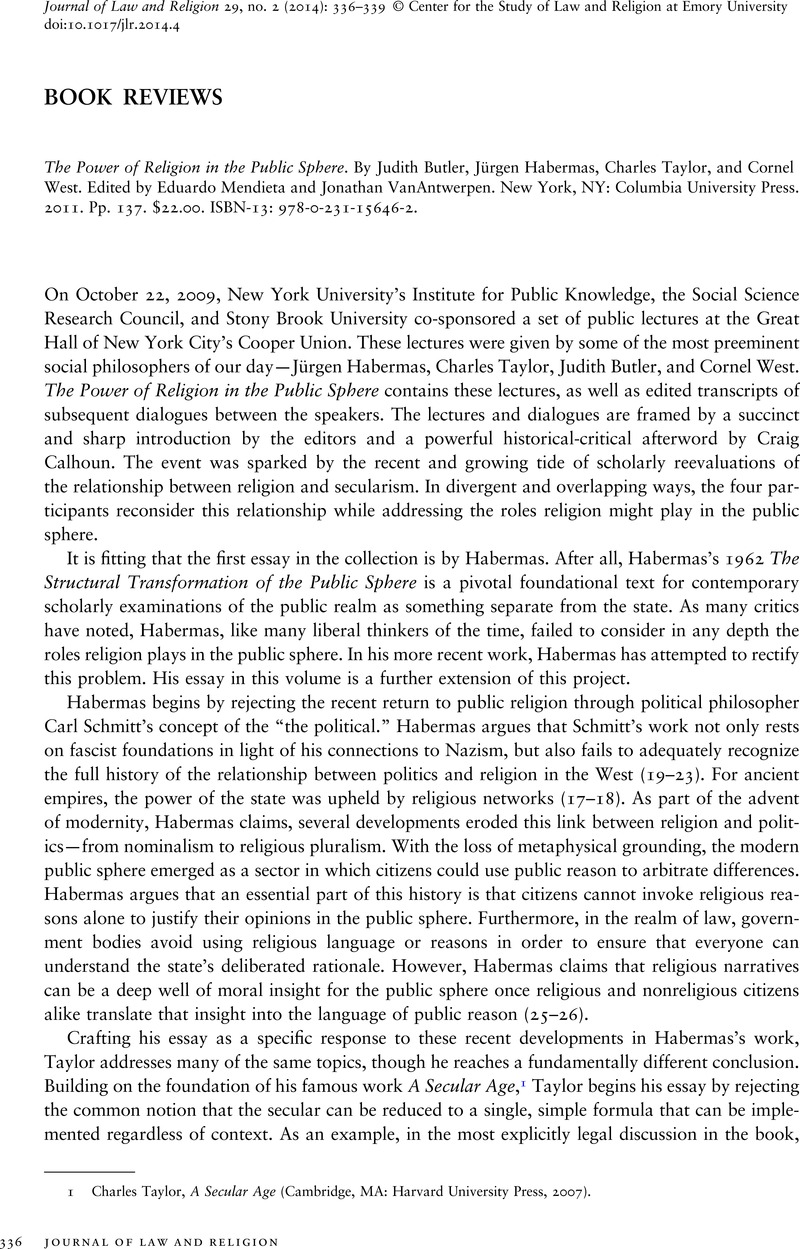Published online by Cambridge University Press: 23 May 2014

1 Taylor, Charles, A Secular Age (Cambridge, MA: Harvard University Press, 2007)Google Scholar.
2 Recently, Taylor has extended this point in response to the proposed ban on government employees wearing religious symbols in his native Quebec: treating religion as a special case actually conflicts with the important secular goal of inclusivity. See, e.g., The Canadian Press, “Quebec Religious Symbols Ban Proposal Roundly Condemned,” CBC News, August 20, 2013, http://www.cbc.ca/news/politics/quebec-religious-symbols-ban-proposal-roundly-condemned-1.1352729.
3 Butler, Judith, Precarious Life: The Powers of Mourning and Violence (New York: Verso, 2004)Google Scholar; Butler, Judith, Frames of War: When Is Life Grievable? (New York: Verso, 2009)Google Scholar.